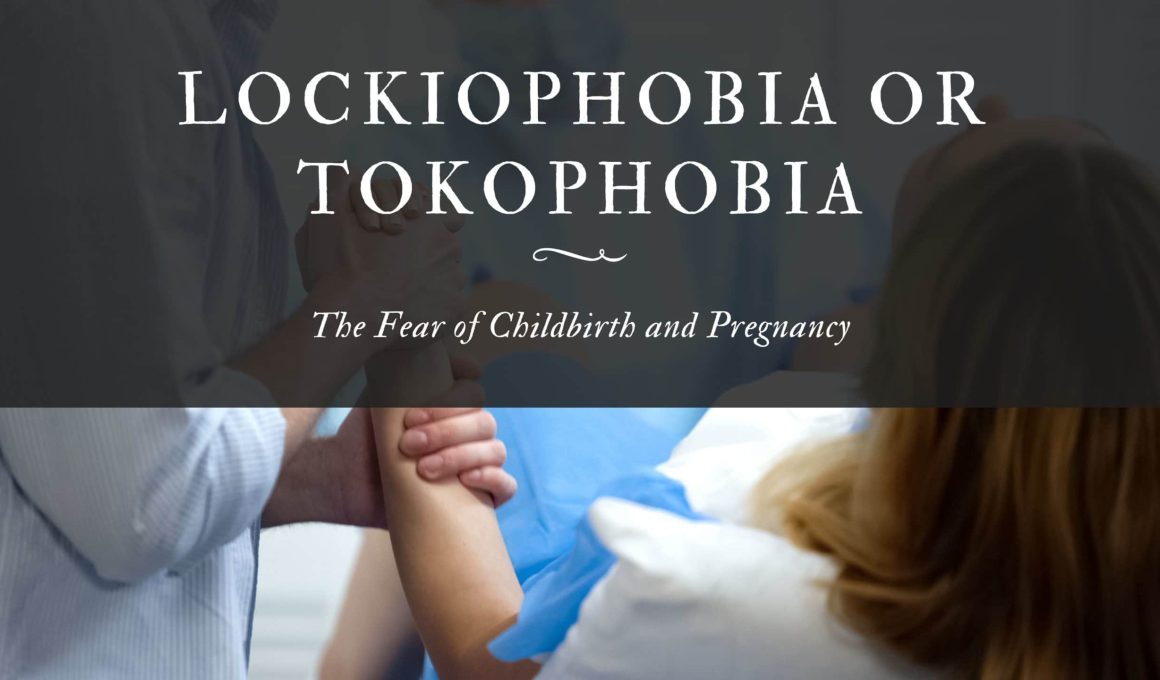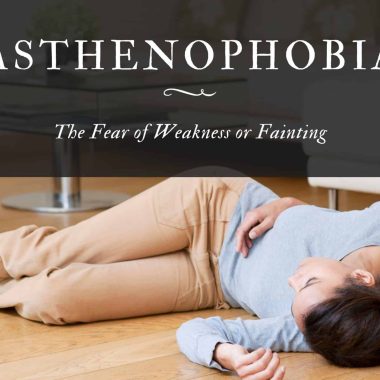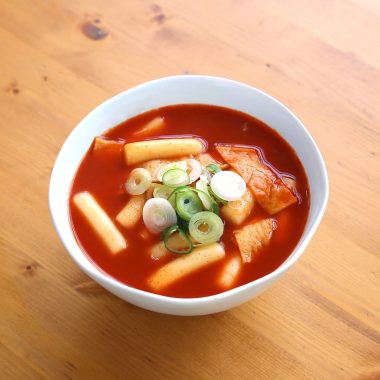Pregnancy and childbirth could seem scary, especially for women without experience and for women who have had bad experiences in the past in relation to pregnancy and childbirth.
Pregnancy comes with lots of fears and complications such as morning sickness, a change in physical appearance, loss of appetite, fear of dying with the pregnancy, fear of giving birth to a dead baby, fear of birthing an ugly baby, having a fear of loving the baby, etc.
Have you ever imagined having an irrational fear of pregnancy and childbirth? Well, if you’ve imagined it, you know how scary it can be if you had to live that way.
Lockiophobia is a term used to describe the irrational fear of pregnancy and childbirth.
In this text, we will look at all you need to know about the causes, symptoms, and possible treatment options for lockiophobia.
Lockiophobia is gotten from the Greek words ‘Lochio’ which means Childbirth and “Phobia’ which means fear.
Other names for this fear are;
- Maieusiophobia: this is coined from Greek words ‘Maieusis’, which means delivery of a woman in childbirth, and ‘Phobia,’ which means fear.
- Tocophobia
- Tokophobia: This term is coined from the Greek words ‘Tokos,’ which means childbirth, and ‘Phobia,’ which means fear.
- Parturiphobia: This is coined from the Latin words ‘Paturire,’ which means to be pregnant, and ‘Phobos,’ which means fear.
People with Lockiophobia may also have Teratophobia, which means Fear of Monsters, fear of bearing a deformed child, and fear of deformed people.
Statistics available report that about 14 to 22 percent of women are Lokiophobic, and the count could be higher.
Types of Lockiophobia
There are two types of Lockiophobia. They are Primary Lockiophobia and Secondary Lockiophobia.
Primary Lockiophobia
This type of Lockiophobia is usually found in women with no pregnancy or childbirth Experience. It is found to begin in early childhood or adolescence. Lockiophobia here could be as a result of one’s mother’s experience, an older woman’s experience or from school lessons.
Secondary Lockiophobia
Secondary Lockiophobia occurs in women with a previous pregnancy and childbirth Experience. It begins as a result of past Traumatic Experiences concerning pregnancy, labor, and childbirth.
It could also occur due to poor Medical, Antenatal, Natal, or Postpartum care.
Causes
There are genuine and numerous reasons why any woman might be Lokiophobic. Although the chances are slim, Lockiophobia could be genetically inherited.
Underlisted are some of the possible reasons why many women are Lokiophobic.
1. Traumatic Past Experience with Pregnancy and Childbirth
Women who had rough, traumatic childbirth would certainly be scared of getting pregnant and going through the same process again.
During pregnancy, some women are neglected by their spouses and families and are left to suffer.
Such women would definitely not want to go through pregnancy and childbirth alone and would, therefore, avoid getting pregnant at all costs.
Poor Medical care before, during, and after pregnancy contributes to this phobia. Also, miscarriages and the death of one’s baby can make one become Lokiophobic.
Also, women who had difficulties and complications during pregnancy and childbirth would see getting pregnant and giving birth as a death sentence and would become tokophobia.
2. Rape, Sexual abuse, and bad sex Experience
Women and girls who have been raped and abused sexually get scared of getting pregnant as the experience would trigger flashbacks. Most of them find it difficult to have sex.
Also, women who have had bad or painful sexual intercourse would certainly not like to attempt pregnancy and childbirth.
3. Dysmenorrhea
Dysmenorrhea, in layman’s terms, means painful menstruation. It is characterized by severe discomfort, Heavy cramping, loss of appetite, etc. It is quite similar to the symptoms of early pregnancy, though without the bleeding.
Although the pain can’t be compared to labor pain, it’s still an insight into what women go through during pregnancy and childbirth, and it is enough to make a woman become Lokiophobic.
4. Passive Experience
Watching another woman’s traumatic experience during pregnancy and childbirth can trigger Lockiophobia. Also, lessons from school and Childbirth films viewed without guidance and support can make one become Lokiophobic.
Some women might have Lockiophobia as a result of FGM (Female Genital Mutilation), as this narrows the vaginal orifice in most cases. They might have to go through surgery to widen it again.
After all these painful experiences, the women might be convinced not to try to have children. There is a slight relationship between Androphobia, which is the Fear of men, and Lockiophobia.
This is because a woman who hates men might not want to have sex with any man, not to mention getting pregnant for one.
Symptoms
- A feeling of anxiety at the thought of Pregnancy and Childbirth.
- They hate talking about pregnancies and childbirths, as these might trigger panic attacks.
- They won’t watch any film featuring pregnancy or childbirth
- Taking birth control pills to avoid pregnancy. They can also make use of other family planning methods.
- Some women go to the extent of asking for hysterectomy (Complete removal of the womb) in very severe cases of Lockiophobia.
- They often tend to avoid sex so as not to become pregnant.
- They would prefer to stay away from a pregnant woman, especially one that is in labor, so that they won’t see the person go through pain or childbirth.
- Opting for abortion if they mistakenly fall pregnant.
- Some women who really want children but are tokophobic might opt for elective Caesarian Section to have their babies.
- Women who don’t want to take the risk of getting pregnant but want children can go for other options for having children, such as Adoption and Surrogacy.
- Some women don’t even want to get married so as not to fall pregnant or be pressured to do so.
Treatment
Treating phobias is usually a long process that requires a lot of courage and determination. Underlisted are simple steps to recovering from a phobia.
1. Self Care
The requirement for professional help, in this case, is important. There are still several remedies and self-exercises to undergo to try to get rid of Lockiophobia.
Meditation, positive confessions, positive visioning, keeping journals and diaries, positive pep talks, eating healthy, exercising, resting, setting up goals and achieving them, Creating a support/backup system, building up moral support by engaging in spiritual exercises, having talks with women who have had past safe Pregnancies and childbirth.
Also, it would do a lockiophobic patient much better to try and view pregnancy and childbirth from a positive angle. The woman should always believe that her pregnancy will end well.
2. Cognitive Behavior Therapy
Cognitive Behavior Therapy is based on the principle of rewarding positivity. Its main focus is on helping the individual who has the phobia to identify the root of the trigger, unlearn past notions, and then reinforce positivity towards that particular fear trigger.
In other words, it deals with helping the individual to get hold of oneself, affirm positivity towards the trigger, and work with the positivity. This is usually achieved with the help of a counselor and countless counseling sessions.
CBT teaches the phobic individual to gain control of oneself. It might seem difficult as this has to do with procreation and would take longer than it might be when applied to other phobias.
Of course, the health care provider, spouse, family members, and friends should be involved if this is to be successful. Also, negative talks on pregnancies and childbirths should be avoided around the tokophobic patient.
3. Desensitization
In layman’s terms, desensitization is the process of getting rid of wrong or obsolete knowledge or information and replacing it with the right or current information and knowledge. In simple terms, it involves the act of unlearning and relearning.
In this case, talking to women with past safe Pregnancies and childbirths would be of great help. Also, constant talks and therapy sessions with health care providers would help in reducing panic and anxiety.
4. Hypnotherapy
This is applied in the treatment of severe cases of Lockiophobia. The psychotherapist helps the Lockiophobic patient relax and sends them into a deep sleep-like state.
A series of questions are asked concerning the search for the root cause of the phobia. Once the root cause of the problem (Lockiophobia) is discovered, hypnotical treatment begins.
The patient, still in a deep sleep-like state, is reaffirmed that pregnancy and childbirth are not a death sentence and would turn out well if managed carefully.
A woman who is Lockiophobic or was Lockiophobic in the past requires great care from healthcare providers, spouses, Family members, and friends before and during pregnancy and childbirth.









